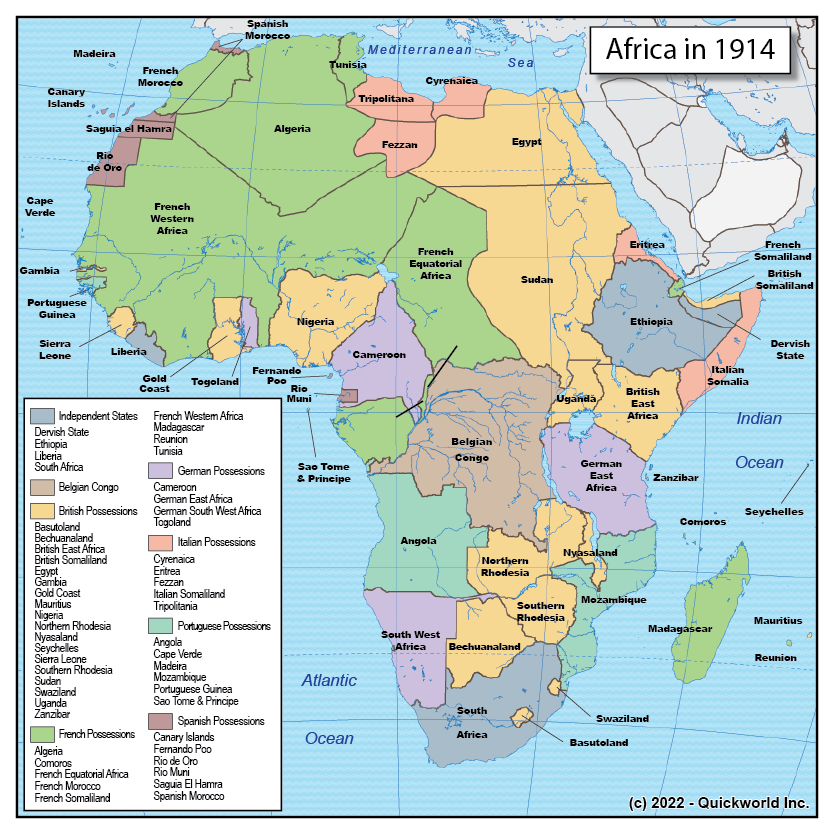On the eve of World War I, Africa is almost completely under the domination of European powers. The Berlin conference, 30 years earlier, had defined some "zones of influence" within which those powers would not fight one another, and this was the start of a rush to conquer the vast continent. Britain and France controlled about two thirds of Africa, while Belgium, Germany, Portugal and Italy controlled most of the rest. Ethiopia was still an independent Empire, and Liberia had been founded by African-Americans as a place of return for descendants of African slaves. South Africa had been granted independence from the United Kingdom, but was still part of the British Commonwealth.
The First World War would not make huge changes to the balance of power, except for the German colonies, which came under the protection of the winners of the War (Britain, France, South Africa and Belgium). In the 1930s, Fascist Italy subjugated Ethiopia after a long war. World War Two would prove far more radical in the redrawing of Africa. As European powers became considerably weaker compared to the USA and the USSR, the post-War period saw the access to independence of all colonies, starting with the Italian possessions in the 1950s and ending with the Portuguese decolonization in the mid 1970s.
More on Africa in 1914.
Africa in 1914


